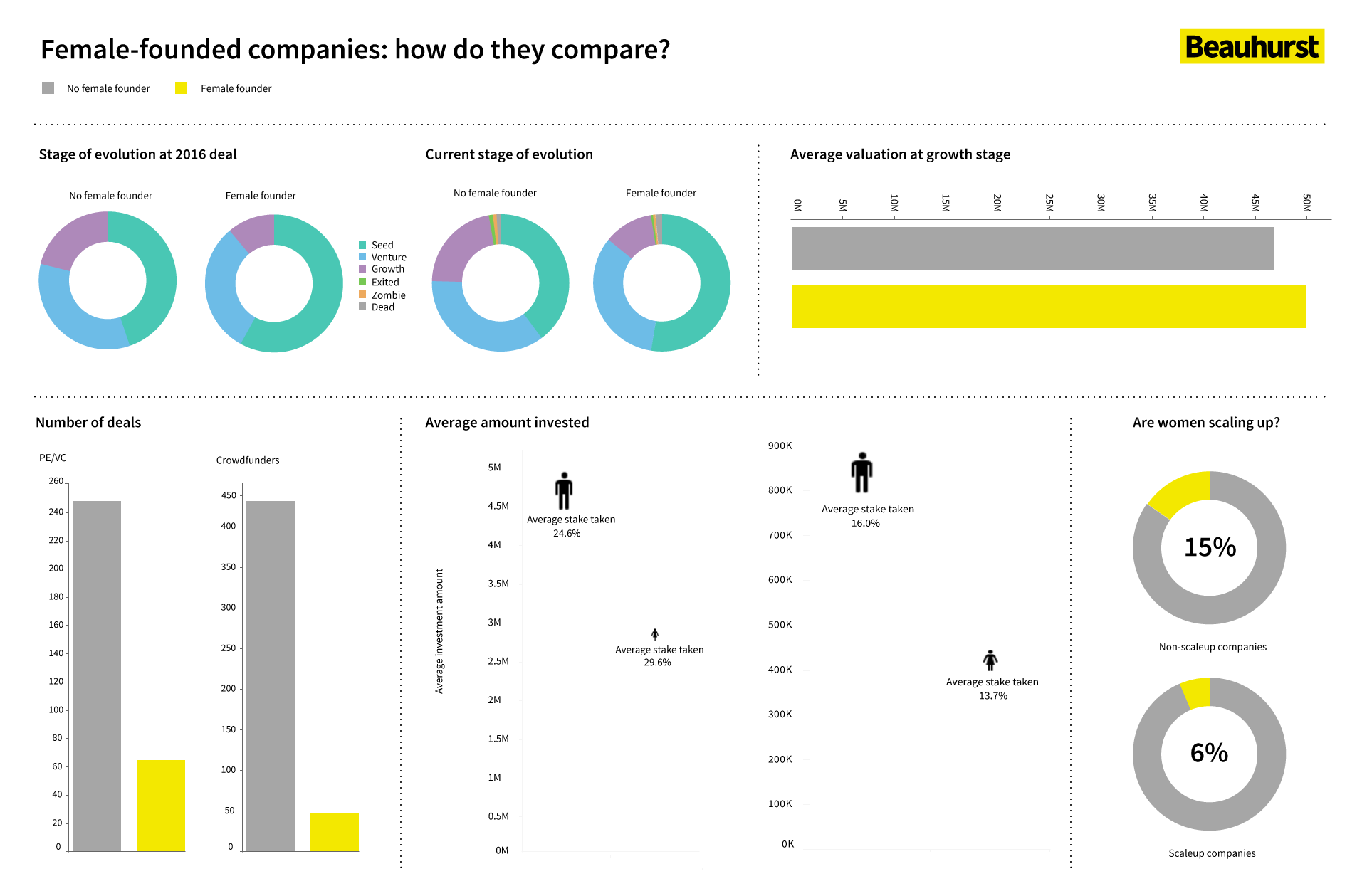Women own over 48 per cent of the UK’s wealth, yet only make up 14 per cent of angel investors across the nation. This glaring statistic has spurred on a number of dynamic sophisticated investors to step up and speak out about the gender skew in angel investing.
According to new research, based on nearly 200 high net worth women across the UK, 94 per cent of women reported that their financial advisers fail to propose angel investing as part of their investment portfolio. The study was carried out by UK Business Angel Association (UKBAA) and Angel Academe, which shows a serious lack of awareness and opportunity for women to learn about and engage in angel investing.
“Women own over 48 per cent of the UK’s wealth and are achieving considerable success in their professional lives, with 23.6 per cent of FTSE 100 directors being women,” CEO of UKBAA, Jenny Tooth OBE reiterated. “Yet so many of these women are missing out on the opportunity to use their financial capacity and business acumen to invest in the growth of early-stage businesses, especially those led by female entrepreneurs.”
“At present the vast majority of angel investors are men: currently only 14 per cent of the UK’s angel investors are women and this is clearly a cultural issue, not a lack of finance.”
UKBAA’s Women in Angel Investing Summit yesterday hosted a line-up of successful angels, from Dale Murray CBE to Debbie Wosskow, who spoke about the traditional hang-ups and barriers for women in the sector, as well sharing their own stories of how they got into the field.
See also: Are women in Britain excluded from the world of finance?
The event was part of a major new campaign by UKBAA. “At UKBAA, we are on a mission to change this situation and increase the proportion of female angel investors in the UK to at least 30 per cent in the next two years, ensuring that women are given the support, encouragement and skills to engage effectively in the exciting and rewarding world of angel investing,” she added.
The impact of having more women investors can trickle down to the uneven gender split among entrepreneurs as well. “Access to a pool of investors with a wealth of experience and diverse mindsets can only be beneficial to ambitious founders, and there is a huge opportunity for women to bring their experience to unlock growth in these dynamic organisations,” Sarah Abrahams, head of growth finance at Grant Thornton, which hosted the summit, said.
It’s estimated that in the UK alone, if every single woman who wanted to start her own business had the support to make that possible, it would immediately produce 340,000 new businesses and support 425,000 new jobs. But access to finance is a huge barrier for female founders. A separate study published earlier this year found that one in five female founders are not being heard by male investors. It also found that access to capital remains the largest challenge facing women in business today.
Having just one woman on the other side of the pitch can boost female founders’ chance of being backed. Data from Beauhurst seems to back this. As most investors are white and male, all too often, so are the founders they back.
Beauhurst dissected fundraising data in August 2017, so companies that raised funding in December 2016 have only had eight months to grow. Regardless of that, both male- and female-backed companies appear to have grown at a roughly similar rate. 5 per cent of companies that were seed-stage a year ago are now venture-stage: true for both male and female led start-ups.
When it comes to equity investment, however, more late-stage, growth capital is going into firms with male-only founders.

Scale-ups, companies that have grown an average of 20 per cent per year for three consecutive years, are particularly notorious of gender skew. Of the scale-ups that received backing in 2016, only 6 per cent were founded by women, yet female-founded companies make up 15 per cent of all deals.
According to Beauhurst, there could be two main reasons for this funding gap. Either this is because women are only just beginning to lead high-growth companies, and most of the female-led start-ups that fundraised last year are at the seed stage. Alternative, it’s the age-old problem: do funders doubt that female founders have the ability to scale?
Additionally, Starling Bank, Blippar, Notonthehighstreet and Oxstem all stand out as female-founded startups that saw large raises last year. However, these companies are overshadowed by the sheer volume of deals into male-led companies.
Women in 2016 gave away an average of 30 per cent of their companies in exchange for less than £2.9 million, compared to men who gave away an average of below 25 per cent in equity and left with £4.7 million.
Despite all this, late-stage companies founded by women were valued at roughly 6 per cent, or £3 million, more than those founded by their male counterparts. This is after having to struggle to secure funding, and often receiving less cash for more equity than their male counterparts.
However, time and again, research on closing the gender gap across sectors points to the real and urgent need for strong female role models. Women need ‘real models’ as opposed to just role models, particularly when running a business. Male and female founders can benefit from angel investors who support and guide their business growth, but considering just how stark the gender differences are when it comes to start-up funding, a friendly, relatable face of a successful woman who has been there and done that may be exactly what a female founder needs.
A call to increase the number of female angel investors is indirectly a call to support and guide a whole new tranche of female founders, ultimately boosting the British start-up ecosystem all around.






